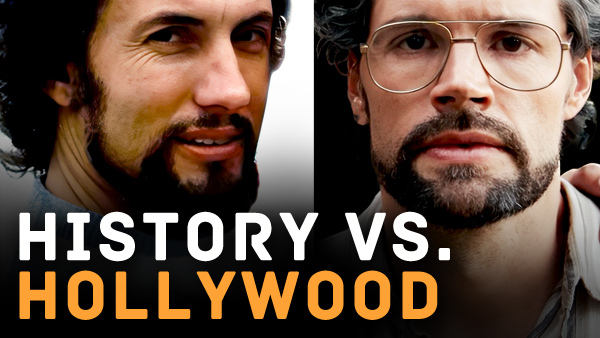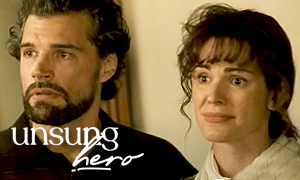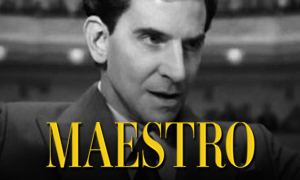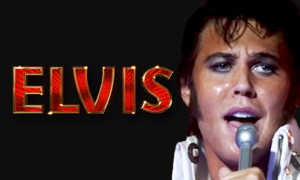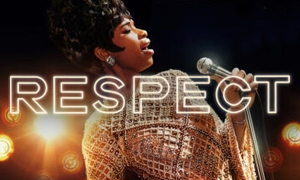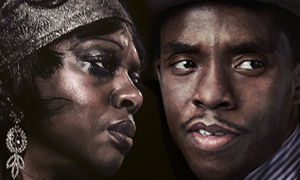The United States vs. Billie Holiday: History vs. Hollywood
Andra Day
Born: December 30, 1984
Birthplace:
Edmonds, Washington, USA
Billie Holiday
Born: April 7, 1915
Birthplace: Philadelphia, Pennsylvania, USA
Death: July 17, 1959, New York City, USA (complications from cirrhosis of the liver)
Garrett Hedlund
Born: September 3, 1984
Birthplace:
Roseau, Minnesota, USA
Harry Anslinger
Born: May 20, 1892
Birthplace: Altoona, Pennsylvania, USA
Death: November 14, 1975, Altoona, Pennsylvania, USA (heart failure)
Tyler James Williams
Born: October 9, 1992
Birthplace:
Westchester County, New York, USA
Lester Young
Born: August 27, 1909
Birthplace: Woodville, Mississippi, USA
Death: March 15, 1959, New York City, USA (alcoholism)
Natasha Lyonne
Born: April 4, 1979
Birthplace:
New York City, USA
Tallulah Bankhead
Born: January 31, 1902
Birthplace: Huntsville, Alabama, USA
Death: December 12, 1968, New York City, USA (pneumonia)
Dusan Dukic
Birthplace:
Belgrade, Serbia, Yugoslavia
Joe Glaser
Born: December 17, 1896
Death: June 6, 1969, New York City, USA (stroke)
Is Billie Holiday depicted accurately in the movie?
Not exactly. Not only is her artistic spark absent from The United States vs. Billie Holiday movie, the true story reveals that her sense of humor is also missing, which friends often recalled. Instead, we get a mostly miserable Billie Holiday who is plagued by heroin addiction and alcoholism. Flashbacks show her being abused by men and life in general.
Her mother had been a prostitute. Billie was raped at age 10, and by age 14, she had begun to sell her body in order to survive and was soon pimped out. Eventually, after a prison stint for prostitution, she turned to drugs and alcohol to ease the pain, starting an "on and off" addiction to heroin in the early 1940s. However, depicting her as merely a passive victim is a misrepresentation of her life. While abuse and addiction were certainly a part of it, she never let it define her. Friends say that she was a fighter who did as she pleased, making the decision to live recklessly in part because she enjoyed it. The movie also skims over her role as a creative and highly talented musician.
Director Lee Daniels has said that he wanted to focus on the last decade of Billie Holiday's life and her role as a Civil Rights hero since it had been glossed over in the 1972 film made about her, Lady Sings the Blues starring Diana Ross, which was based on her autobiography of the same name. However, that film offered a more well-rounded depiction of the singer (it also garnered Diana Ross an Oscar nomination). Here, the focus has been narrowed and the happier parts of Holiday's life and personality have been almost entirely omitted. The United States vs. Billie Holiday movie was adapted from a chapter about Holiday in Johann Hari's bestselling book Chasing the Scream: The First and Last Days of the War on Drugs.
Does singer/actress Andra Day just happen to have the same name as Lady Day?
While conducting our United States vs. Billie Holiday fact-check, we discovered that Andra Day is a stage name that the singer/songwriter chose years ago as a homage to Billie Holiday (nicknamed Lady Day). Andra Day was born Cassandra Monique Batie. Her performance in the movie is her first acting role. Billie Holiday herself was born Eleanora Fagan.
How did Billie Holiday become a singer?
Starving and looking for work, one day Billie walked around Harlem in search of employment, stopping in every bar she came upon. After being rejected nearly everywhere, she stopped in a place called the Log Cabin. She told them she could perform as a dancer, but when she showed them a few moves, it was clear her dancing skills weren't worthy of payment. She grew desperate and asked the owner if she could try singing instead. They walked over to an old piano in the corner where he told her to give him something to play. She requested "Trav'llin' All Alone." As she sang, the patrons put down their drinks and became transfixed on the young lady's heartfelt voice that was filling the room. By the time she completed her next song, "Body and Soul," tears were streaming down many of the customers' cheeks. The singer, who eventually became known as "Lady Day," had been discovered.
Did Billie Holiday strip naked when Agent Jimmy Fletcher showed up to arrest her?
Yes. The United States vs. Billie Holiday true story confirms that she stripped naked when Agent Jimmy Fletcher showed up to take her into custody. She also peed on the floor in protest, but that unsavory detail was left out of the film.
Did Billie Holiday have an affair with the black Federal Bureau of Narcotics agent who arrested her?
Not likely. In The United States vs. Billie Holiday movie, she has an affair with Jimmy Fletcher (Trevante Rhodes), the undercover agent who arrests her. While the affair adds a significant amount of drama to the movie, there's little evidence that anything close happened in real life. There's no report of the two ever being lovers, nor was he the good guy that got away.
Agent Fletcher falling in love with Holiday when she goes to jail seems to have been inspired by several lines in Johann Hari's book Chasing the Scream: The First and Last Days of the War on Drugs. In the book, Hari writes that Fletcher and Holiday ended up dancing together at Club Ebony, and they had many close conversations spanning a variety of topics. Years later, Agent Jimmy Fletcher said that Holiday "was the type who would make anyone sympathetic because she was the loving type." Based on this scant evidence, Hari theorizes that Fletcher seemed to have fallen in love with Holiday. The movie embraces this throwaway line from the book and interprets it as them having a passionate affair.
Most of what happens between them in the final two-thirds of the film never happened in real life. The real Agent Fletcher didn't follow Billie Holiday on her cross-country tour. He also never came to see her when she was on her deathbed. What is true is that Fletcher never stopped feeling guilty for what he put her through.
Was Billie Holiday an early Civil Rights hero?
Yes, but the movie focuses on this so much that it makes it seem like she was more of an activist than an artist. She did come under the watchful eye of the Federal Bureau of Narcotics (now the DEA) because of her decision to keep singing the anti-lynching song "Strange Fruit," despite the authorities telling her to stop, but it was hardly the sole catalyst that led to her self-destruction. Her traumatic past and addiction-prone life had already set her on that path (friends have told stories of her running out of places to shoot up on her body, having to inject heroin between her toes and in other unspeakable areas). The stress put on her from the government targeting her for being a social-political artist merely sped up her downfall. The civil rights song "Strange Fruit" was one of many songs that she sang. Others soulfully spoke to the pain and struggle in her life, outside of civil rights, and they deserve to be remembered as well.
This isn't to take anything away from the impact of "Strange Fruit" or Holiday's courage to continue to perform it, which the film effectively conveys. In Johann Hari's Chasing the Scream book, Billie Holiday's goddaughter, Lorraine Feather, points out that back then, "every song was about love. You simply did not have a piece of music being performed at some hotel that was about the killing of people—about such a sordid and cruel fact. It was not done. Ever." And to have a black woman performing a song about lynching was impossible to imagine for the time. Holiday's decision to perform the song would later be called "the beginning of the civil rights movement."
How did Billie Holiday discover the song "Strange Fruit"?
The United States vs. Billie Holiday true story reveals that the song "Strange Fruit" was not written by Holiday. It originated from a 1937 poem written by Jewish-American songwriter and teacher Abel Meeropol, a member of the American Communist Party, a fact that manager Joe Glaser points out in the movie. The poem, originally titled "Bitter Fruit," was inspired by a photograph of the 1930 lynching of Abram Smith and Thomas Shipp in Marion, Indiana. Meeropol set his poem to music himself, and it was initially performed in social settings by his wife and their friends, eventually spreading around New York.
Billie Holiday first performed the song in 1939 at the Café Society in Greenwich Village, an integrated nightclub. Depending on which story you believe, she either learned of the song from the nightclub's founder, Barney Josephson, or from Robert Gordon, the director of her show at the Café Society, who heard the song when it was performed by Laura Duncan at Madison Square Garden. Below, you can watch Billie Holiday sing "Strange Fruit" live in 1959.
Is radio journalist Reginald Lord Devine based on a real person?
No. Reginald Lord Devine, the radio journalist portrayed by Leslie Jordan, is fictional. In the movie, Billie Holiday (Andra Day) is interviewed by Devine, which triggers a flashback to a 1947 performance at New York City's Café Society, where Holiday had debuted "Strange Fruit" eight years earlier. Director Lee Daniels told Variety that Devine is a combination of Quentin Crisp and Skip E. Lowe.
Holiday's stylist in the movie, Miss Freddy, is also fictional. The character is played by Miss Lawrence, who could previously be seen on The Real Housewives of Atlanta and Empire, the latter of which was co-created by Lee Daniels.
Was Billie Holiday fearful of retaliation for singing "Strange Fruit"?
Yes. She admitted that singing the song made her fearful of retribution, but she sung it because the lyrics reminded her of all the things that had killed her father (he died of pneumonia in the South after he was unable to find a hospital that would treat a black man). The song became a staple part of her live shows. The authorities demanded she stop singing it but she refused. It was then that the Federal Bureau of Narcotics targeted her, using her drug addiction as a way to take her down for speaking out about racism.
The song, which conjures up images of the mass murder of blacks in the South, describes their tortured bodies hanging from the trees. It begins with the lines:
Southern trees bear a strange fruit,
Blood on the leaves and blood at the root.
Was the government out to destroy Billie Holiday?
Yes, but this is fictionalized somewhat in the movie. The film imagines the discussions between the federal agents, who come off as caricatured bad guys as they talk about trying to take down Holiday. Agents wouldn't have talked like that. They would have mistakenly believed that they were the good guys, with the tragedy and evil being that they didn't even realize they were on the wrong side of morality and history.
The movie attempts to make the same point that Johann Hari does in his book Chasing the Scream (which inspired the film)—that the War on Drugs didn't start with good intentions. It began as a war on minorities, with drugs providing the justification to target them and assert greater control over their lives. Billie Holiday is just one example that supports this realization, which deserves further exploration.
Was the head of the Federal Bureau of Narcotics, Harry Anslinger, a racist?
Yes. As detailed in Johann Hari's book Chasing the Scream: The First and Last Days of the War on Drugs, Harry Anslinger (portrayed by Garrett Hedlund in the film) was rather outspoken with regard to his racist views. After taking charge of the Federal Bureau of Narcotics, he eventually changed his position on marijuana, which he had previously viewed as a harmless nuisance that did not lead to violent crime. He soon found himself arguing the opposite position, namely because he believed that African Americans and Mexican immigrants were using it much more than white people. He saw these minorities as two of the biggest threats to America.
Anslinger warned the House Committee on Appropriations of the danger, telling them a story he heard about "colored students at the University of Minn[esota] partying with female students (white) and getting their sympathy with stories of racial persecution. Result: pregnancy." He continued to push this reasoning, warning that marijuana caused blacks to forget appropriate racial barriers, resulting in their lust for white women to be unleashed. In an official memo, he used the n-word to refer to a black suspect, which prompted Senator Joseph P. Guffey in Anslinger's home state of Pennsylvania to call for Anslinger's resignation. In another instance, when one of his very few black agents complained about fellow agents calling him the n-word, Anslinger fired the black agent.
In internal memos, Anslinger described jazz music as sounding "like the jungles in the dead of night." He said that jazz music got its "horrible" sound because the musicians were under the influence of marijuana. He said that they "reek of filth." After getting nowhere targeting jazz musicians in general, he narrowed his focus to a single target, Billie Holiday. He set out to destroy the legendary singer, while letting other white stars battling heroin addiction off the hook. This included Judy Garland, who he simply advised to take longer hiatuses between movies, telling her studio that she didn't have a drug problem.
Was Billie Holiday really dragged off the stage during a performance of "Strange Fruit"?
At one point in the movie, Billie Holiday (Andra Day) is on stage and begins to sing the anti-lynching song "Strange Fruit." A group of police officers waiting in the back of the auditorium descend on her and violently drag her from the stage. It makes for a searing moment of defiance in the film, but while conducting our fact-check, we found only a brief mention of something possibly similar happening in real life. Holiday told Down Beat magazine in 1947, "I've made lots of enemies, too. Singing that ['Strange Fruit'] hasn't helped any. I was doing it at the Earle [Theater in Philadelphia] 'til they made me stop." She doesn't go into more detail about what exactly unfolded. However, she did receive her fair share of abuse from audiences for singing the song. While in the North, some audience members would walk out, and in some parts of the Deep South, they threw bottles at the stage. -NPR
Where does the movie's title come from?
After Billie Holiday's abusive husband/manager/former pimp Louis McKay teamed up with Federal Bureau of Narcotics head Harry Anslinger to set her up, she found herself busted again and on trial. The case was called "The United States of America versus Billie Holiday." She was sentenced to a year in West Virginia prison and was forced to go cold turkey as she withdrew from drugs. While inside, she worked in a pigsty during the days and never sang a note. She ended up serving eight months. -Chasing the Scream
Did Billie Holiday have a relationship with Tallulah Bankhead?
Yes. Billie Holiday's bisexuality and relationship with Tallulah Bankhead is barely touched upon in the film. We see Billie Holiday (Andra Day) and Tallulah Bankhead (Natasha Lyonne) go for a walk in the park. In real life, they reportedly had an intense and stormy relationship in the late nineteen-forties. Bankhead even tried to personally intervene with FBI head J. Edgar Hoover to exonerate Holiday of the drug charges that were strangling her career. Their relationship ended due to the same sorts of pressures that prompted Bankhead to insist that she be kept out of Holiday's autobiography, Lady Sings the Blues. Bankhead feared that it would ruin her career.
Holiday's relationship with Bankhead isn't the only one that's largely absent from the film. Billie Holiday's affair with Orson Welles around the time of Citizen Kane is also absent (though there is a mention of him waiting for Holiday at a club). Her relationship with Charles Laughton in the 1930s is missing as well. -Billie Holiday: The Musician and the Myth
How long did the Federal Bureau of Narcotics target Billie Holiday?
The true story behind The United States vs. Billie Holiday reveals that the Federal Bureau of Narcotics (now the DEA) targeted Billie Holiday from at least 1939 up until her death in 1959 at age 44.
Was Billie Holiday really stripped of her cabaret performer's license?
Yes. When Billie Holiday got out of prison she was stripped of her cabaret performer's license. Being a convict, the government reasoned that listening to her might damage public morality. As a result, she wasn't allowed to perform anywhere that alcohol was served. This meant no U.S. jazz clubs. She still performed at alcohol-free venues like cafes and auditoriums, including several more times at Carnegie Hall, where, unlike in the film, it appears that she did perform "Strange Fruit." She also reunited with Lester Young (pictured below), performing with him on the 1957 CBS television special The Sound of Jazz. However, to a large degree, the government had stripped her of her passion and her livelihood. They had finally silenced her. In the end, she had so little money that she couldn't properly take care of herself or even rent an apartment in her own name. Simply paying for food was a challenge.
Holiday became paranoid that the people around her were informing on her to Harry Anslinger's agents at the Federal Bureau of Narcotics, and she was correct in her assumptions. Agents continued to ask about her and monitor what she was doing. The government, in particular Anslinger and the Federal Bureau of Narcotics, had largely destroyed Billie Holiday's life and they had no plan to let up. Anslinger assigned another agent, a corrupt, obese man named George White, to take her down. It is believed that White planted drugs and drug paraphernalia in her room at the Mark Twain Hotel in San Francisco. To prove this, she checked herself into a rehab clinic to demonstrate that she would show no withdrawal symptoms. She found herself back on trial, only this time the jury found her not guilty. There's no evidence that Agent Jimmy Fletcher purposely threw the case on the witness stand to help her prove her innocence.
Can the government be blamed for Billie Holiday's death?
At age 44, Billie Holiday collapsed while at the apartment of a young musician named Frankie Freedom. After Knickerbocker Hospital in Manhattan turned her away for being a drug addict, paramedics who recognized her took her to New York City's Metropolitan Hospital. She had cirrhosis of the liver from alcoholism, was emaciated from not eating, had respiratory and cardiac problems from constant smoking, and had ulcers on her legs from injecting heroin. Harry Anslinger's narcotics agents showed up, handcuffed her to the bed, and claimed they found less than one-eighth of an ounce of heroin in a tinfoil envelope that had been hanging from a nail on the wall, which she would have been incapable of reaching from the bed.
Billie Holiday was arrested and two police officers were stationed at her door. When she started to go into heroin withdrawal, her friends got a doctor to come and prescribe methadone. However, as part of Harry Anslinger's policy, the methadone was stopped after ten days and her condition worsened again. A Harlem reverend named Eugene Callender showed up and requested that she be allowed to recover in the clinic he built for heroin addicts. The request was denied. They had fingerprinted her and took a mugshot as she lay in her hospital bed.
Billie Holiday died approximately a month and a half after entering the hospital. Did the Federal Bureau of Narcotics kill Billie Holiday? It can be argued that they directly did so by ordering that the methadone be stopped, forcing her severely weakened and emaciated body to face the rigors of withdrawal without assistance. Indirectly, it seems the authorities in the least sped up her journey of self-destruction, which ultimately led to her death at age 44. One can certainly make the argument that if she had still been allowed to perform, she wouldn't have sunk so deep so soon. By prohibiting her from singing at jazz clubs, she had been largely stripped of her passion and left with only her addiction. -Chasing the Scream
Billie Holiday Performances, Interview & Related Videos
Further explore The United States vs. Billie Holiday true story by watching the live performances, interview, and movie trailer featured below.
